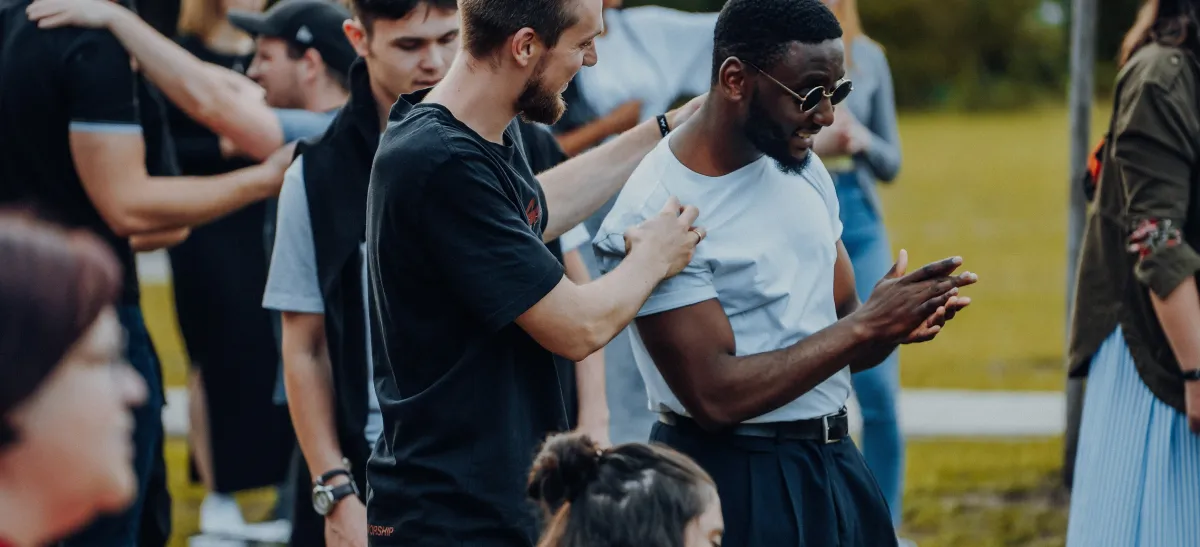Interlinking Faith and Climate Action Can Go a Long Way in Engaging Faith Communities in Climate Activism
While there is no one right answer to the climate crisis, more people are willing to try and find what works through faith-based conversations.

Access the Audio Read version of this article directly on Spotify for Podcasters.
With unprecedented flooding across the globe, oil spill disasters and wildfires in the past year, the upcoming COP26 in Glasgow is landing at a crucial time for our planet, to say the least. At each COP conference, almost every country in the world comes together to discuss how to set goals that will alleviate the climate crisis. ‘Together’ is a key word here, because the climate crisis is one that is not contained by borders - and needs global efforts to really make change. Interestingly, in the months leading up to the conference, the Church of England announced its own goal to achieve net zero across all it’s dioceses in 10 years. With the UK government’s current goal being net zero by 2050, the Church of England's latest announcement is an ambitious one, and calls into consideration the impact of such a major faith organisation taking initiative regarding climate action.
The Church is far from the only faith-focused group involved in the climate movement, and many interfaith spaces around the issue span international borders. Shanon Shah, the director of Faith For The Climate, an interfaith network of 325 faith-based organisations and individuals working on climate change, points out that climate action interlinks with social justice movements more broadly - making large scale community engagement key to success. “Intersectionality and decolonising have to go hand in hand, and there is no way to talk about the climate crisis without talking about histories of injustice,” Shah says. Acknowledging global histories and social structures is just one of the ways in which climate action can be brought to a community level with more holistic efforts towards change.
Shah, amongst many others, believe that faith-based organisations (FBOs) are uniquely placed to start those conversations, sharing that groups like EcoSikh, a global Sikh response to the environment, have various branches across the world - working on community projects in India, the UK and more. Dr Matthew Barber-Rowell, founder of the faith based organisation Spaces of Hope, points out that faith can have a huge role in public life as well, as it allows people to feel more deeply and engage with the things they care about. It’s also important to then engage with those aspects of faith discourse that can get communities more involved. “It’s important to tap into the local leadership uniquely offered by FBOs,” says Dr Barber-Rowell. “By drawing on our different faiths, we can reimagine responses to Climate Emergency and co produced expressions of care for creation through local action. Drawing on FBOs can offer a deeper and more authentic community response to the global issues shaping our lives.''
But when it’s done right, Shah adds that this connection can go beyond political tensions, by pointing out how despite the uneasiness of relations between South Asian countries, Muslims, Hindus and Sikhs from the region work well with each other within climate action spaces. In fact, the work that faith-based organisations are doing has potential to go beyond faith communities. Faith-based climate advocate Ellie Singer, based in Houston, Texas, also shares how she’s observed interfaith links in her own family who are Jewish, while she is an Episcopalian convert. “When we talk about climate change, I reference the Magnificat and they reference Tikkun Olam. Regardless of how we approach it religiously, though, we approach it together. Not only that, but we’re motivated by divinity in a way that makes us skeptical of earthly powers and principalities. We may not share faiths, but we share faithfulness,” she shares.
As part of LSE Faith Centre’s Faith and Climate Action workshop, I had the chance to not only engage with people from various faith backgrounds but also to see how people who didn’t particularly pertain to a specific faith saw faith-based discourse as a tool for community engagement. In an increasingly secular world, FBOs and leadership have long been restricted to faith related issues, but now that they are speaking up, people are listening. But bringing the two worlds together doesn’t come without its challenges. Saba Yasin, who runs the climate action department at global NGO Islamic Help points out that Muslim climate activists can sometimes be marginalised on both sides. The activists within this group have mentioned that they face double marginalisation – being too “green” for their faith communities and being too religious within their green communities. “Their home mosques seemed to have been critical of green behaviour, and climate groups did not very often use religion as a way to promote environmental activism,” she says. “The activists were left to design creative strategies – such as the ‘green prayer’, an ecological prayer combining the traditional form of prayer but with the protection of the environment”.
But while facing a problem as monumental as the climate crisis, an issue that certainly doesn’t have one right answer, initiating an open dialogue at a community level, and trying to find what works through faith-based conversations is a start - and it’s inspiring.





